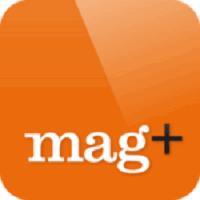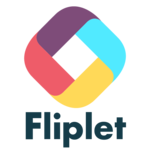Description

Mag+ Application Development

Pega 7 App
Comprehensive Overview: Mag+ Application Development vs Pega 7 App
Mag+ Application Development
a) Primary Functions and Target Markets:
- Primary Functions: Mag+ is a digital publishing platform designed for creating interactive mobile content. It enables users to design and publish digital magazines, brochures, catalogs, and other types of content for iPads, iPhones, Androids, and Kindle devices. The platform provides tools for designing layouts, incorporating multimedia elements, and managing content distribution.
- Target Markets: Its primary market includes publishers, marketing professionals, and companies looking to expand their reach through interactive mobile publications. This includes magazines, corporate publications, and custom content applications for businesses.
b) Market Share and User Base:
- Mag+ is a niche product predominantly focused on the digital publishing sector. While it does not boast a massive market share compared to more general-purpose app development platforms, it has a loyal user base among digital magazine publishers and businesses looking for specialized mobile publishing solutions.
c) Key Differentiating Factors:
- Its ease of use for non-technical users is notable, allowing content creators with little programming experience to produce high-quality interactive publications.
- Mag+ also offers a seamless integration with Adobe InDesign, making it attractive to designers familiar with Adobe products.
- The platform's focus on rich, multimedia interactivity is a significant differentiating factor, providing capabilities specifically tuned for magazine-like content.
Pega 7 App
a) Primary Functions and Target Markets:
- Primary Functions: Pega 7, developed by Pegasystems, is a business process management (BPM) and case management platform. It is aimed at organizations looking to build complex, process-driven applications that can be rapidly adapted to changing business needs. Pega 7 helps automate a variety of business operations through rule-based workflow automation and decisioning techniques.
- Target Markets: The primary targets are large enterprises in industries such as finance, insurance, healthcare, and customer service, seeking to improve process efficiency, enhance customer engagement, and ensure compliance.
b) Market Share and User Base:
- Pega 7 is well-regarded within the BPM space and has a substantial market share among enterprises needing robust business process management solutions. It is known for its large-scale implementations in global corporations.
c) Key Differentiating Factors:
- One of Pega 7's key differentiators is its model-driven, no-code application development environment, which allows businesses to adapt processes quickly without the extensive need for custom coding.
- Its focus on artificial intelligence (AI) and robotics for process automation adds a level of sophistication not found in simpler BPM tools.
- Pega’s ability to integrate with legacy systems and its scalability are also significant advantages for large enterprises.
WebRatio
a) Primary Functions and Target Markets:
- Primary Functions: WebRatio is a low-code development platform focused on building enterprise web and mobile applications. It offers visual development tools that aim to accelerate app development by abstracting much of the coding process into a higher-level design workflow.
- Target Markets: Organizations looking for the flexibility and speed of low-code solutions, particularly in sectors such as financial services, manufacturing, and utilities.
b) Market Share and User Base:
- WebRatio, while not having a dominant market share, appeals to companies seeking a balance between development speed and the capability to build complex applications. Its user base includes enterprises focusing on digital transformation with limited internal development resources.
c) Key Differentiating Factors:
- Its focus on Model-Driven Development (MDD) is a central pillar, which contrasts with more traditional coding approaches and promises faster turnaround times for application development.
- WebRatio's flexibility in integrating with various enterprise systems and existing IT infrastructure sets it apart, along with its support for cross-platform deployment.
- The platform offers a blend of speed, power, and adaptability that is particularly suited for enterprises needing bespoke applications with complex integrations or custom workflows.
In summary, while Mag+ is specialized for digital publishing with interactive content, Pega 7 excels in process automation for large enterprises, and WebRatio provides a versatile low-code platform ideal for rapid enterprise application development. Each has its own niche and differentiating features, serving different segments of the software development market.
Contact Info

Year founded :
Not Available
Not Available
Not Available
Not Available
Not Available

Year founded :
Not Available
Not Available
Not Available
Not Available
Not Available
Feature Similarity Breakdown: Mag+ Application Development, Pega 7 App
Feature Similarity Breakdown for Mag+ Application Development, Pega 7 App, and WebRatio
a) Core Features in Common
-
Rapid Application Development (RAD):
- All three platforms support rapid application development, allowing users to build applications quickly with minimum hand-coding.
-
Drag-and-Drop Interfaces:
- They all offer drag-and-drop tools for designing user interfaces, which simplifies the process of application development.
-
Cross-Platform Capabilities:
- Each supports the creation of applications that can run on multiple platforms, whether web, mobile, or other environments.
-
Integration Capabilities:
- These tools provide integration capabilities with various data sources and existing systems, facilitating seamless data import/export and interactions.
-
User and Role Management:
- They include features to define and manage users, roles, and access permissions.
-
Visual Development Environment:
- A visual development environment is a common feature across these platforms, aimed at non-programmers or those who prefer visual over textual coding.
-
Workflow Management:
- Automation and management of business workflow processes are supported across all three products.
b) User Interface Comparison
-
Mag+ Application Development:
- Primarily focused on creating digital content, Mag+ has a highly visual and design-focused interface. It offers intuitive tools for laying out content and testing interactive elements directly on devices.
-
Pega 7 App:
- Pega 7's interface is more business-oriented, with a structured and process-driven design. It is tailored for heavy process management and includes extensive rule-based configurations. The UI supports complex enterprise applications by focusing on user roles and case management.
-
WebRatio:
- WebRatio provides a balance between visual design and technical control. It has a model-driven development approach, offering not only a visual interface but also underlying access to more technical aspects for customization. The UI is geared towards flexibility in web and mobile app development.
c) Unique Features
-
Mag+ Application Development:
- Unique in its focus on digital publishing, Mag+ specializes in creating interactive magazine-style applications. Features like instant device testing, in-app purchase integration for content monetization, and dedicated digital publishing workflows set it apart.
-
Pega 7 App:
- Known for its strengths in Business Process Management (BPM) and Customer Relationship Management (CRM), Pega 7 offers adaptive analytics and decision management features that are not emphasized in Mag+ or WebRatio.
-
WebRatio:
- WebRatio stands out with its emphasis on model-driven development (MDD) and strong support for BPMN (Business Process Model and Notation) as well as integrations using standard protocols like REST and SOAP. It is particularly suitable for enterprise app development needing deep customization.
In summary, while all three platforms offer powerful capabilities for application development, their unique features and visual interfaces cater to different target audiences and application needs. Mag+ leans towards digital publishing, Pega 7 excels in process-driven enterprise applications, and WebRatio offers a balance between technical depth and business process support.
Features

Not Available

Not Available
Best Fit Use Cases: Mag+ Application Development, Pega 7 App
When analyzing the best fit use cases for Mag+ Application Development, Pega 7 App, and WebRatio, it's essential to consider the unique features and strengths of each platform, as well as the specific needs of businesses or projects in various industry verticals and company sizes.
a) Mag+ Application Development
Mag+ is a platform focused on digital publishing, offering a powerful toolset for creating interactive and visually appealing content for tablet and mobile applications.
- Types of Businesses or Projects:
- Publishing and Media Businesses: Companies that produce magazines, brochures, catalogs, or other visually-driven content can leverage Mag+ to create interactive digital editions or apps.
- Advertisers and Marketers: Agencies looking to create compelling advertising campaigns with interactive elements and rich media can use Mag+ to stand out.
- Corporates with Internal Publications: Large organizations needing to distribute internal magazines or corporate communication materials can benefit from the platform’s ease of use and rich feature set.
b) Pega 7 App
Pega 7 is known for its capabilities in business process management (BPM) and customer relationship management (CRM), offering a scalable and flexible environment for building enterprise-grade applications.
- Scenarios for Pega 7 App:
- Complex Workflow Management: Businesses looking to automate complex processes and enhance operational efficiency should consider Pega 7.
- Financial Services: Banks, insurance companies, and other financial institutions can use Pega 7 for managing customer interactions, underwriting, and claims processing.
- Healthcare: Organizations needing to manage patient care, billing, and regulatory compliance can benefit from Pega's process automation features.
- Large Enterprises Across Industries: As a platform that supports scalability, Pega is suitable for large enterprises that need robust software solutions with extensive integrations.
c) WebRatio
WebRatio is a low-code platform emphasizing rapid application development, particularly suited for web and mobile apps.
- When to Consider WebRatio:
- Rapid Prototyping and Development: Businesses needing to quickly deploy applications with visual modeling can leverage WebRatio's capabilities for fast iterations.
- Custom Business Applications: Organizations that want to create bespoke applications tailored to specific business processes or models.
- SMBs and Departments within Larger Organizations: Smaller businesses or divisions within larger companies can benefit from WebRatio's ability to deliver solutions efficiently without the need for extensive development resources.
d) Industry Verticals and Company Sizes
Each platform targets different industry needs and company sizes based on their core strengths:
-
Mag+ caters more to industries focused on content and media, from small agencies to large publishing houses, due to its emphasis on digital publishing and interactivity.
-
Pega 7 is ideally suited for larger enterprises across varied industries such as finance, healthcare, and government, where complex process automation and CRM functionalities are essential.
-
WebRatio appeals to both small to medium-sized businesses and larger entities seeking rapid delivery of web and mobile solutions, particularly when there is a demand for customization without deep coding expertise.
In summary, the choice between Mag+, Pega 7, and WebRatio will depend on the specific needs of the business, including project complexity, industry requirements, and company size, each providing distinctive benefits and catering to certain niches effectively.
Pricing

Pricing Not Available

Pricing Not Available
Metrics History
Metrics History
Comparing undefined across companies
Conclusion & Final Verdict: Mag+ Application Development vs Pega 7 App
When evaluating Mag+ Application Development, Pega 7 App, and WebRatio, it is crucial to consider multiple factors such as ease of use, functionality, cost, support, and the specific needs of the project. Here is a comprehensive conclusion and final verdict:
a) Best Overall Value
Pega 7 App offers the best overall value. It stands out due to its robust capabilities in process automation and customer engagement, offering a feature-rich platform that supports complex business processes with a model-driven approach. It is especially valuable for organizations looking to streamline operations, enhance decision-making, and improve service delivery.
b) Pros and Cons
Mag+ Application Development
Pros:
- Specializes in digital publishing and mobile application development, especially for magazines.
- Provides a user-friendly interface with drag-and-drop functionalities.
- Offers a high degree of creative freedom for designing visually compelling content.
Cons:
- Limited to specific use cases in digital publishing.
- May not support complex business logic or enterprise-level automation.
- Licensing and customization can lead to higher costs if scaling beyond basic needs.
Pega 7 App
Pros:
- Strong in business process management (BPM) and customer relationship management (CRM).
- Allows for scalable applications that can handle enterprise-level requirements.
- Model-driven application development reduces coding efforts and accelerates deployment.
Cons:
- Can be complex for users unfamiliar with BPM software, resulting in a steep learning curve.
- Higher initial investment compared to simpler tools focused on niche applications.
- Requires skilled personnel to leverage the full potential of the platform.
WebRatio
Pros:
- Focuses on rapid application development with a low-code environment.
- Offers flexibility in designing web and mobile applications.
- Can reduce development time and costs for projects with a need for efficiency.
Cons:
- Limited to applications that do not demand intense customization or intricate functionalities.
- Community and support might be less extensive compared to Pega 7.
- Typically more suited for smaller-scale development rather than large enterprise solutions.
c) Recommendations for Users
For users deciding between these products, the choice should be guided by the specific nature and requirements of their projects:
-
For Digital Publishing Needs: Choose Mag+ Application Development if your primary requirement is creating digital content like e-magazines or simple interactive mobile applications. It's an ideal choice for publishers and media companies focused on delivering engaging visual content.
-
For Comprehensive Business Solutions: Opt for Pega 7 App if you need a platform that can handle complex business processes, automate workflows, and deliver powerful customer engagement tools. It's best suited for medium to large enterprises seeking a scalable and robust solution.
-
For Rapid Development & Prototyping: Consider WebRatio if your goal is to quickly develop applications with minimal coding, especially suitable for startups or businesses needing quick turnaround times for web and mobile apps.
In conclusion, while Pega 7 App offers the best overall value for enterprises seeking comprehensive process management and automation capabilities, the decision should align with the specific project goals, technical capacity, and budget constraints. Consider the long-term strategic impact of each platform and evaluate the skills available within your team to ensure a successful implementation.
Add to compare
Add similar companies



